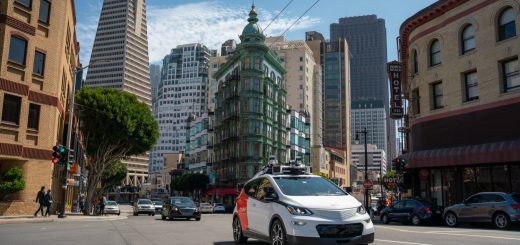Over the last several months, we’ve seen an unfortunate surplus of mis-information about the role the U.S. government has in the running and operations of General Motors. Luckily, a recent Forbes interview with GM CEO Dan Akerson — available below — sheds light on The General’s interaction — or lack thereof — with the U.S. government.
For starters, the U.S. government’s investment in GM consisted of $6.7 billion of loans, $2.1 billion of preferred stock, and 912 million units of common stock (valued at $40.7 billion). GM has payed pack all of the loans, bought back all of the preferred shares (with interest), and sold down a total of $23 billion of common stock during its IPO. In other words, there is no official debt: the government — as of this writing — only has an equity position in GM, making it purely a shareholder among more than 200,000 other shareholders. What’s more, the government has the ability to sell its stock at any time — an act purely up to the government, and not up to GM.
Now, the government is still GM’s largest shareholder, but it’s not represented in the boardroom or in the making of any decisions. And this is where most of the mis-information (or mis-understanding) occurs, so it may be worth repeating: the government does not in any way make decisions or involve itself in the running of GM. Some skeptics may then ask why not… and Akerson gave a very clear answer in saying that this is a question better asked of the government. But just as Akerson — a business man — is no expert in the management of a national economy or in politics, the government — being a political entity — made a wise decision to bring in a new board of business people (not politicians who more often than not are not inclined in business matters). Coincidentally, Akerson was brought in as part of the new board.
More than that, however, is the fact that GM — being a public company — now has a fiduciary responsibility to all of its shareholders, regardless if they own a million shares or a thousand shares. So once GM went public again, certain SEC restrictions are now preventing it from disclosing some information to one shareholder (the government, for instance) and not to others. The playing field is level, if you will, and the government is not influencing the game… with one glaring exception: the authorities in charge of the TARP funds have — for some reason — a way to limit the salaries of GM management. This is by far not the same as making day-to-day decisions about product, planning, and engineering… but it’s a decision that should be left to the shareholders for a vote. And therein lies the rub: the government is the largest shareholder, so it can — technically — somewhat make decisions that would otherwise be left up to shareholders (such as bonuses and salaries of executives). Clearly, a very gray area.
In addition, prior to GM’s IPO, the government received monthly reports and held regular meetings with the automaker where they’d vote on certain motions — just as a private shareholder would. For his part, Akerson has revealed that he has spoken twice to President Obama during his tenure as GM CEO, but did not go into detail about the subject matter of the discussions.
So there you have it: the U.S. government does not in any way, shape, or form have any kind of decision-making ability on the day-to-day operations of the New General Motors. Here’s the same from Akerson himself:















Comments
Thanks Alex, for highlighting this video. Surprising that it has been out for over a month and this is the first I have heard of it (I am GM Employee and besides our internal communications, I also surf most of the major automotive blogs).
There is so much misinformation out there regarding the loans and the government role that it makes me sick on an almost daily basis.
Thanks again for setting the story straight. +1
Wait what? did he say depth being paid off?
wait sorry i meant debt
General Motors is a successful company making record profits it’s all the proof you need the government is not involved
Thats true, if the Government was involved they would be losing money just like anything the Government gets involved with.
Then 73% of General Motors Corporation is in China today and 1 Billion was directed to Russian Manufacturing plants as well as a Housing project in Mexico for the workers. The fact General Motors of Canada Limited did not end up in chapter 11 is because the Superior Court of Ontario documents has it as a Privatly owned Canadian Company with the Corporation as Indirect Parent. This information is huge as Canadian Taxpayers were told as the Canadian Government gave 10.6 Billion the Corporation owned it 100% Toni Clement was the Federal Minister who did that.